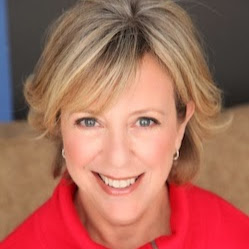
I am awakened from a dream. In it I can’t stop scratching. I look at my arms, my legs, my hands. They’re fine. There’s nothing there. I have these dreams occasionally. I call them death residue, unfinished business. I know this one is about the time I found him scratching, scratching, scratching and when I pulled up his pajama leg to see what was wrong I found that he had scratched his skin until it bled. There were scabs up and down his legs and no one from the nursing home had noticed. Or, if they had noticed, they hadn’t done anything about it. Until I took photos of those legs and sent them to the nursing home doctor. After that, “lubricate” became a doctor’s order.
Mostly my dad shows up in my dreams as his younger, more vibrant self and we’re sharing a meal or he’s cutting slices of an apple and handing them to us. He loved to feed us. In another dream I’m looking around the table at my family trying to communicate to them with nods, no words, that they should be taking this in. We’re a family again. Like somehow I know this dream is really a ‘visitation’ but they don’t know that. And I want them to know what a gift this is: Dad, alive and luminous and laughing, if even for a moment. If even in another dimension entirely.
My dad died. Twice.
One day he was larger than life, a laughing, loving, effusive man who talked so much you could hardly get a word in. And the next? Flat. No affect. Silent. A stent surgery opened his valves and shut down parts of his brain. The doctors thought it was depression. They tried all kinds of antidepressants to shake him out of the abyss. One drug did just that for a short period of time but it made him manic. On one occasion he purchased a camera, a carpet and a new car. All in one night.
During the manic episode he called me every night for two weeks while my mother escaped to the patio to commune with her Red Hat Ladies. He would talk and talk and talk. Nonstop. I stayed on the phone with him night after night caught in a tangle of grief and gratitude because even though I knew his behavior was extreme, I was grateful to hear the lift in his voice again. I wanted to believe he was back.
It didn’t last.
Pretty soon my dad fell back into the abyss. He lost more and more weight. The spring in his step became a shuffle. Never a very nurturing woman to begin with my mother grew more and more agitated with him, “Pick up your feet when you walk.” “Sit up.” “Drink some water.” “Eat. For God’s sake, eat.”
The Homestead, an adult day care center, provided her with daily support and the most competent, loving group of caregivers one could hope for. But after six years she could no longer bear the burden of his care. I’ll never forget the day she decided to place my dad in an assisted living facility. My sister called me on Skype. Her eyes were swollen; I could see that she had been crying. My father’s words were still ringing in her ears, “She’s kicking me out.” Even in his current state of cognitive decline, with limited capacity to feel and express emotion, my dad still understood abandonment.
I flash back to my very first job. I’m a waitress in a lovely retirement home called Beechwood. The residents there enjoy spacious rooms overlooking gardens. They eat beautiful meals served in an elegant dining room with rosewood tables and candlesticks. I have my own row of tables and I know everyone in my charge by name and by diet.
Ma and Pa Smith are my favorites.
They walk into the dining room every night like lovers on their first date. I imagine I will one day have a relationship just like that. My sixteen-year-old self has no idea how rare that kind of longstanding love truly is.
At Beechwood, birthdays are celebrated once a month at a big long table placed grandly in front of the dining room, much like the bridal table at a wedding. Steak and cake. Pa Smith waves to Ma from his place at the head table throughout the meal and Ma waves back, a huge smile crossing her lips. Then, Pa carefully wraps his cake in a paper napkin to share with her later in the quiet of their suite. We call their room the honeymoon suite.
Beechwood has two separate units, the retirement home and E-wing. E-wing is where the residents move when they can no longer care for themselves independently. They don’t dine on rosewood tables with candlesticks in E-wing. Mostly, they have trays delivered to their rooms, and on occasion, they are wheeled to the communal dining room where they eat with fellow residents. Meals on wheels.
My dad took up residence in an assisted living facility called The Peaks. It was nothing like Beechwood. Not even E-wing.
I walk into the front lobby and I feel comforted by the giant birdcage and the pleasant arrangement of magazines that adorn the contemporary stone table between two cozy chairs. I fail to notice that the magazines are outdated copies of Runner’s World. It’s been a very long time since any of the residents here needed to know how to prepare for the next big race.
The marketing director ushers me into her office, heels clicking. She assures me that my dad will be well cared for here. “The staff is warm and dedicated.” She doesn’t tell me they are overworked, underpaid, and for the most part, completely ignorant of the specialized needs of the aged.
Next comes the tour.
I see a great big white board, the activity schedule. “We like to keep our residents stimulated!” she chirps. Supposedly there are activities throughout the day. Some are in the assisted living wing. Others are in long-term care. We spend almost two hours crafting my father’s care plan. “How many showers would you like him to have each week? Three? No problem. We can’t guarantee the days you request, but we’ll do our best to fit him into the schedule.”
“What were his interests? Did he have any hobbies? Oh, he was a watercolor painter? We’ll be sure to make time each day for Sam to draw in his sketchpad. What are his favorite foods? He likes pork tenderloin? Spaghetti? Chicken? Great, we’ll make a note of that.”
I leave the office feeling hopeful, clutching the care plan, a promise that my dad will be nurtured in his new home. The room is ready. It’s time to get him settled in. I imagine this is what it feels like to send your child off to his first day of school. Only this isn’t kindergarten. This isn’t a room full of frolicking children dancing around a loving teacher, cheery music playing in the background. This is a lonely little room with a tired armchair, a threadbare carpet, and a hospital-like bed with a mattress that is a foot too short for its frame. The heat is blasting from the radiator. There is no thermostat in the room. It’s April.
I leave the room to get some air.
The silence in the corridors is deafening—no sign of life anywhere—certainly no sign of the activities that are plastered all over the bulletin board.
As I walk through the long-term care wing I find myself praying my father doesn’t live long enough to enter these rooms. The long-term care wing looks like a war torn hospital. Curtains between beds provide the only privacy for the residents there. White spindly legs peek out from under the covers. It’s 3:00 in the afternoon but it may as well be midnight.
My dad spent thirteen grueling months at the Peaks before I could get him moved to a more appropriate setting.
Ten years is an awfully long time to linger in this in between place. Death before death. Yet linger he did. It’s a sunny afternoon. I’m sitting with my husband in an outdoor café. We have just come from his father’s hospital room where we are making plans to move yet another beloved dad into an assisted living center, albeit this one much lovelier than The Peaks. The hospital is releasing my husband’s father to hospice the very next day. The vibration of my cell phone jars me. In the deluge of details we are sorting through to be sure his dad’s transition is smooth if not seamless, I forget that I have a phone conference scheduled with my own dad’s hospice team this very afternoon. The setting isn’t ideal but at least there is cell reception. And wine. This is supposed to be a ‘routine’ care conference. The hospice nurse tells me later that they had been prepared to release my dad from their care because he had, once again, reached a plateau. But this afternoon they are seeing a serious decline. This time it appears to be his last downward spiral.
“Come.”
My suitcase was still packed. It had made its way from California to Annapolis and now, Colorado. I remember ordering dinner at that cafe and not tasting a thing on my plate. I just wanted to be on that plane which wasn’t leaving until early the next morning. “Eat,” my husband urged, but food was the last thing on my mind. I called the night nurse in my father’s skilled nursing home three times that night. I needed to know he was tending my dad with a wide-open heart and loving hands. I felt pretty helpless actually, but somehow just hearing a voice at the other end of the line and remembering this nurse from my last visit gave me peace enough to sleep, though fitfully, until we could make our way to the airport.
He waited.
As much as I thought I’d be ready for my dad’s passing, I wasn’t fully prepared to say goodbye. He was my anchor, the one I could count on to show me the brighter side of anything and everything. He didn’t die the way I hoped he’d die—the way I hope I’ll cross that threshold—in the comfort of my own home, in my own bed, warm and cozy and cognizant. The reality was that as much as I cared for my dad and fought for his dignity, it was never enough. Even with well-meaning caretakers, so many things fall through the cracks. Those are the dreams that still haunt me.
I had never before had the privilege of holding someone close as they passed.
Dying is, indeed, a sacred act.
My little family gathered together in this liminal space sharing slices of my dad’s life as he took his last breath. Somehow I know he was listening.
About the Author: Sue Ann Gleason
 Nourishment guide, SoulCollage® Facilitator, and ‘wise business’ strategist, Sue Ann Gleason is a lover of words, a strong believer in the power of imagination, and a champion for women who want to live a more delicious, fully expressed life. She has been featured in Oprah and Runner’s World magazines and numerous online publications.
Nourishment guide, SoulCollage® Facilitator, and ‘wise business’ strategist, Sue Ann Gleason is a lover of words, a strong believer in the power of imagination, and a champion for women who want to live a more delicious, fully expressed life. She has been featured in Oprah and Runner’s World magazines and numerous online publications.
When not working with private clients or delivering online programs, Sue Ann can be found sampling exotic chocolates or building broccoli forests in her mashed potatoes.
You can connect with her in a few different places. Delicious freebies await you!
nourished living | wise business | instagram

